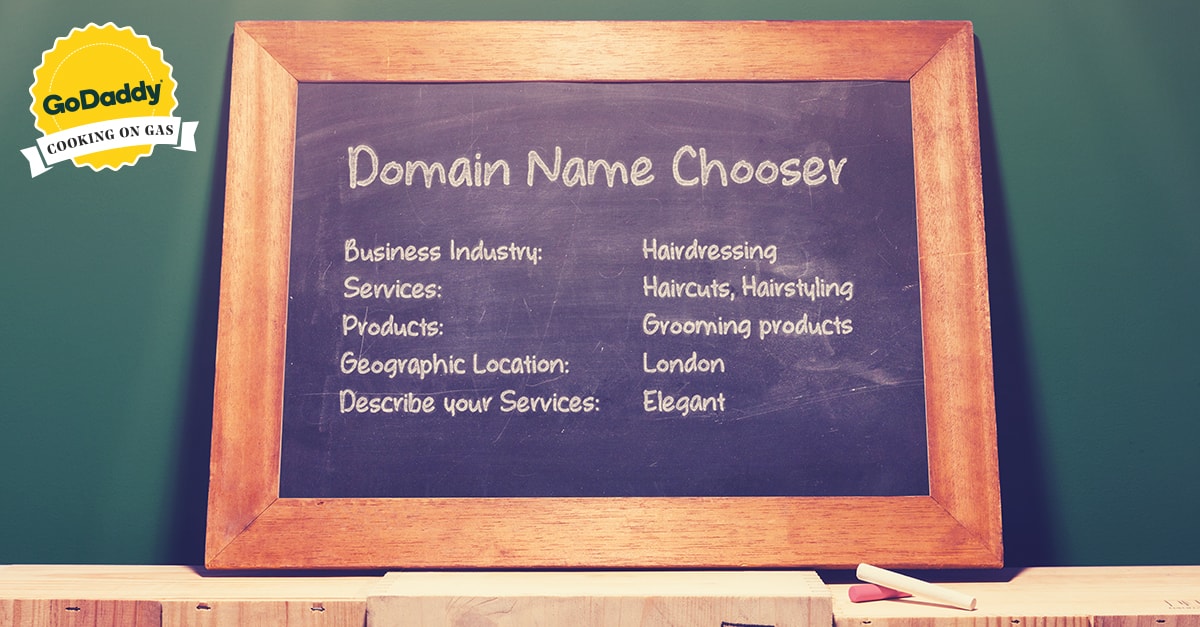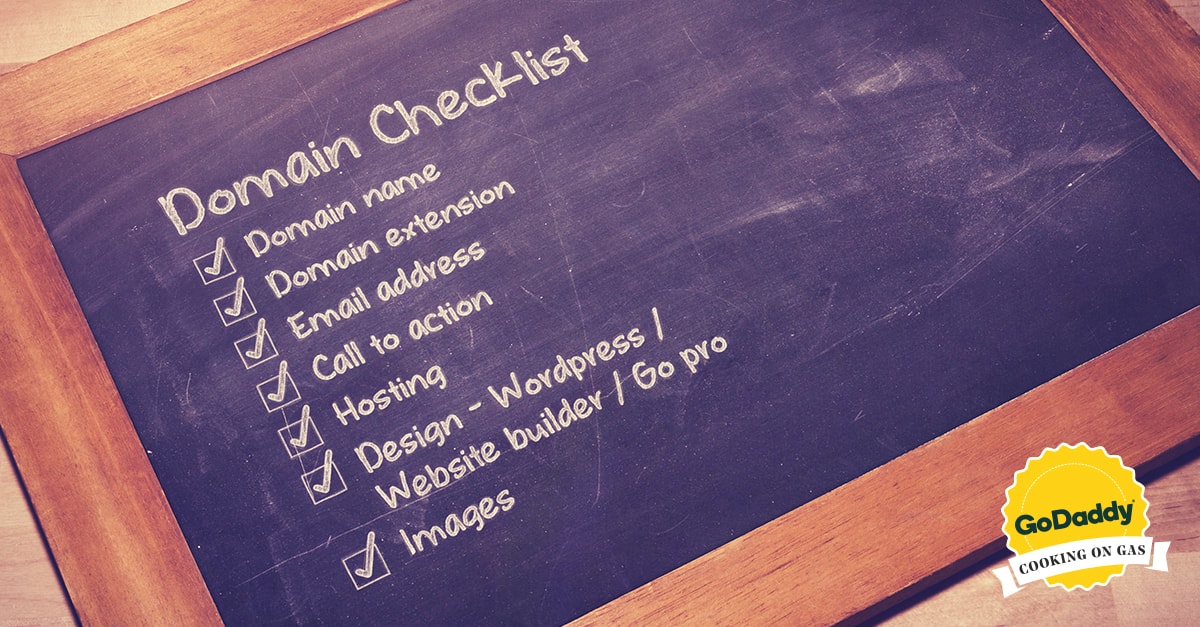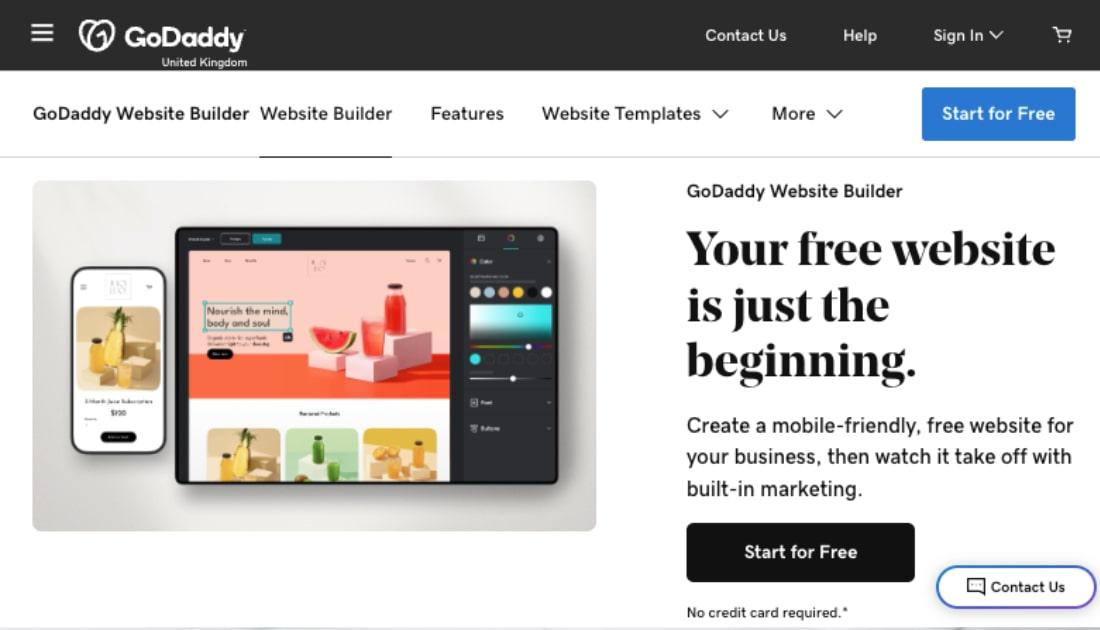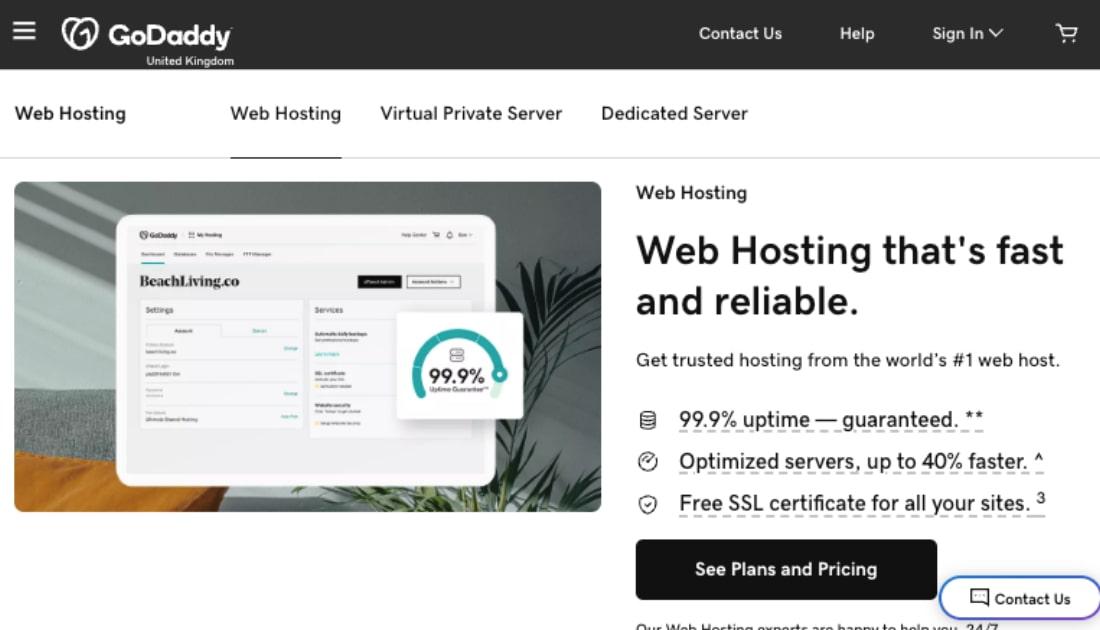So, you’re hungry to start up your own business - and Harry Redknapp with GoDaddy are showing you the recipe for success.
In Recipe #1 we got you started with planning your online business and, in Recipe #2 we mixed-up the ingredients you need to bake-in your brand.
You’ve got your business plan in place, you know how you’re going to achieve your goals - you’ve settled on your brand identity - now it’s time to plan a hot and tasty online strategy.
You can’t cook-up a brilliant business without cracking a few metaphorical eggs. So, let’s crack on.
Find the perfect domain name now:
Choosing your domain - it’s as easy as pie
What is a domain?
It’s the bit of your website address that comes after the ‘www.’ in the URL bar at the top of your browser - although that www. bit isn’t always needed, these days, so don’t panic if it isn’t there.
Like a physical address, every domain has to be unique. It is, essentially, your online address - and it comes in two parts.
- Domain name
- Domain extension
Let’s separate them, like an egg yolk from a white, and look at them in turn.
1. Domain name
A descriptive domain name is great for business. Including the words people use to find you can really help with search engine optimisation (SEO). In other words, if you’re a plumbing business, having the word ‘plumber’ or ‘plumbing’ in your domain name can raise the visibility of your website in the search engines.
A descriptive domain name also makes sense to people. When they see you online or in print work such as business cards, words which describe what you do quickly lets the user know that you’re the folks they’ve been searching for.
Don’t make your audience work. People like domain names that are easy to spell and remember.
You may be thinking that you don’t type website names very often, you mostly just click the links. That’s probably true, except for when you’re using a search engine. You still need to type in (or speak) the search term.
The first time someone visits your site, they may need to enter your name in full in order to find you. Therefore, here’s some tried and trusted rules for choosing your domain.
Domain Name Chooser
Complete the following fields with relevant business information to come up with the perfect domain...

Now try combining the words in your list to create short and representative domain names.
Here are a few pointers to help you with your decision-making:
- Make it memorable: Embrace the obvious. So, it could be your name, or the name of your shop and what you do - something that people already associate with your business. Puns like ‘Hair Today’ or ‘Clip Joint’ can work for a hairdresser, for example; but will a pun still be funny five years down the line, when you’ve got staff answering your phone for you?
- Make it easy to type: If it contains unusual spellings, or shortcodes ‘4’ instead of ‘for’, 4 example, that might make it difficult for people to visit your site. If they can’t spell your name, they can’t find your site.
- Keep it short: A long, rambling name is easy to forget and misspell. Also, let’s be honest, would you even bother typing out a long, elaborate domain if you didn’t have to?
- Use your location: Depending on the type of business you’re cooking up, it could help if potential customers know that you’re local. Also, increasingly, the search engines are giving precedence to businesses that are local to the person doing the search.
Once you have a few workable ideas, do some more market research. Run your possible names by friends and potential customers, narrowing down your list based on their feedback.
When you’ve got a list you love, you’re ready to search for your favorite names’ availability through a registrar like GoDaddy.
Pro tip: Make sure the name you love isn’t trademarked, copyrighted or in use by another company. Just like a logo, you can’t imitate someone else’s name - but you shouldn’t really want to, you’ll just be advertising their business instead of your own.
Okay, so that’s your domain name sorted. Now the extension.
2. Domain extension
The domain extension is the bit of the name which follows the ‘dot’ in the URL.
The most common domain extensions you’ll see are .com, .co.uk, .org and .net. (You can find the answer to the common question "is a .com domain name better" here.) And new extensions regularly join the domain family. Check out .uk or .me or .london, for instance. Want to be business specific? Then there are dozens of other extensions such as .photography or .restaurant, .design or .plumbing, among many, many others.
So, when you are searching for the availability of names, you have loads of extension options to play with. In fact, if you do a bit of digging you may be able to find offers for cheaper domain names.
It’s worth remembering that, as long as it’s registered to you, no one else can claim it or use it.
If you’re ready to go, you can get more help and search for your domains here.
3. What if your preferred domain name is taken?
You’ve gone to a lot of trouble to choose the perfect name. It sums up what you do and works well online. Then it happens. You check its availability only to find it’s already been registered by someone else. There’s another genius out there - great minds think alike.
Don’t worry, though. Visit the site with your chosen name. If it’s just a holding page, rather than a live site, you might be in luck. You might be able to buy it anyway, on the ‘domain aftermarket’. You can find GoDaddy’s aftermarket here: auctions.godaddy.com.
If the domain is not up for auction, you can check who is the owner of the domain and make an offer.
There’s lots of advice here about how you might still be able to get the domain of your dreams.
4. Multiple domains
It can be a good idea to register more than one domain name for your business. You can have several ‘secondary domains’ all pointing at your website.
Here’s why it could be a good idea:
- To protect your brand: If you own a .co.uk domain, for example, someone else could snap up the .com version. They may try to sell it to you at a vastly inflated rate. So, buying a range of sensible variations of your name can help you protect your brand online.
- Geo-location: Since the internet is, by its nature, world-wide, you might find yourself competing for search engine space with companies around the globe. Having additional domain names which include your location can help local customers choose you because you’re local.
- What you do: Customers will typically search by the names of products and services rather than by the names of companies. So, if you offer a product or service that you know will be particularly popular, it’s worth adding it to your domain name.
This also works if your business changes with the seasons. You can cover each of your specialist areas with a different domain name.
5. Brand your emails
Since you’ve bought your own domain, you may as well make use of the custom email addresses that come with it.
Your present email will possibly be something like yourname@yahoo.co.uk - or yourname@gmail.com. If so, I’m sure Yahoo or Gmail are delighted that every email you send advertises their brand instead of yours.
But, with a domain, you can make your email address part of your brand. Yourname@yourbusiness.co.uk will make your business seem bigger, and make you feel more like a player!
You can set this up even before you have a website. So, start building your brand with everything you do.









